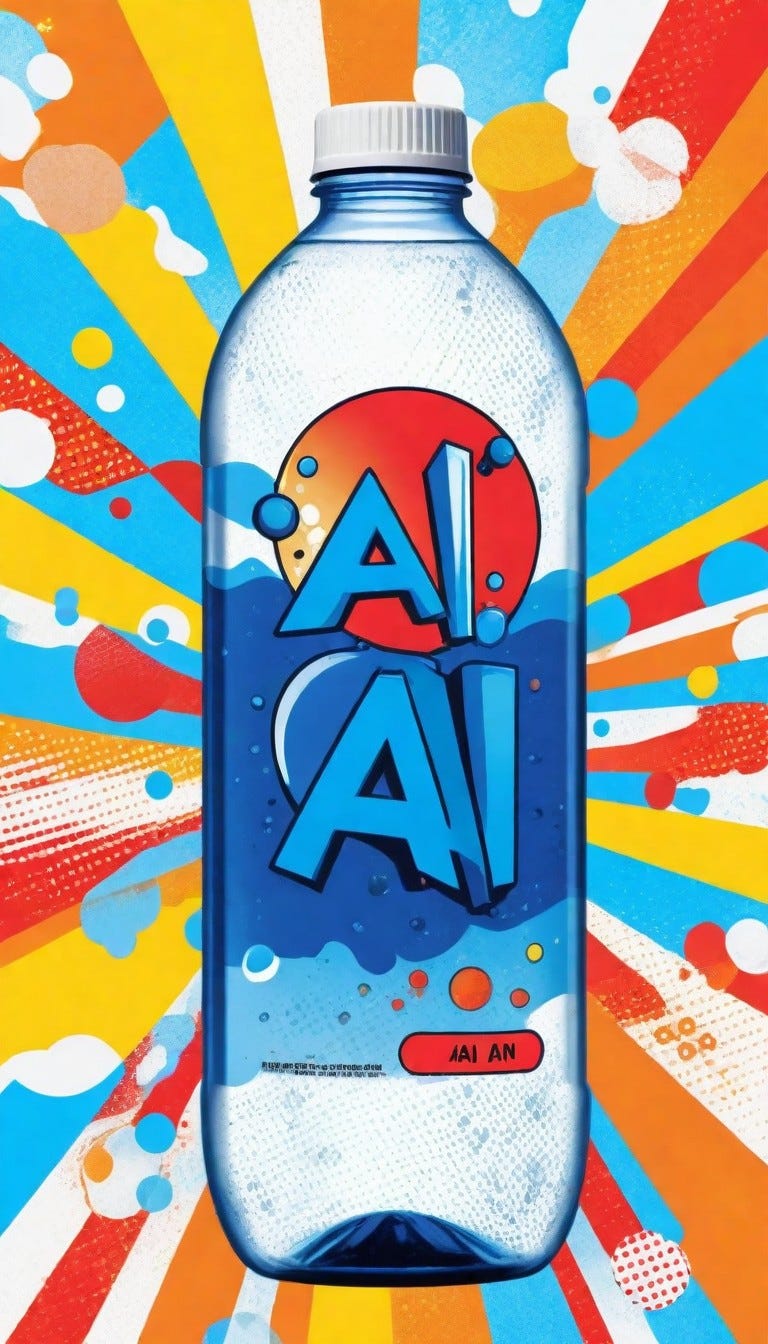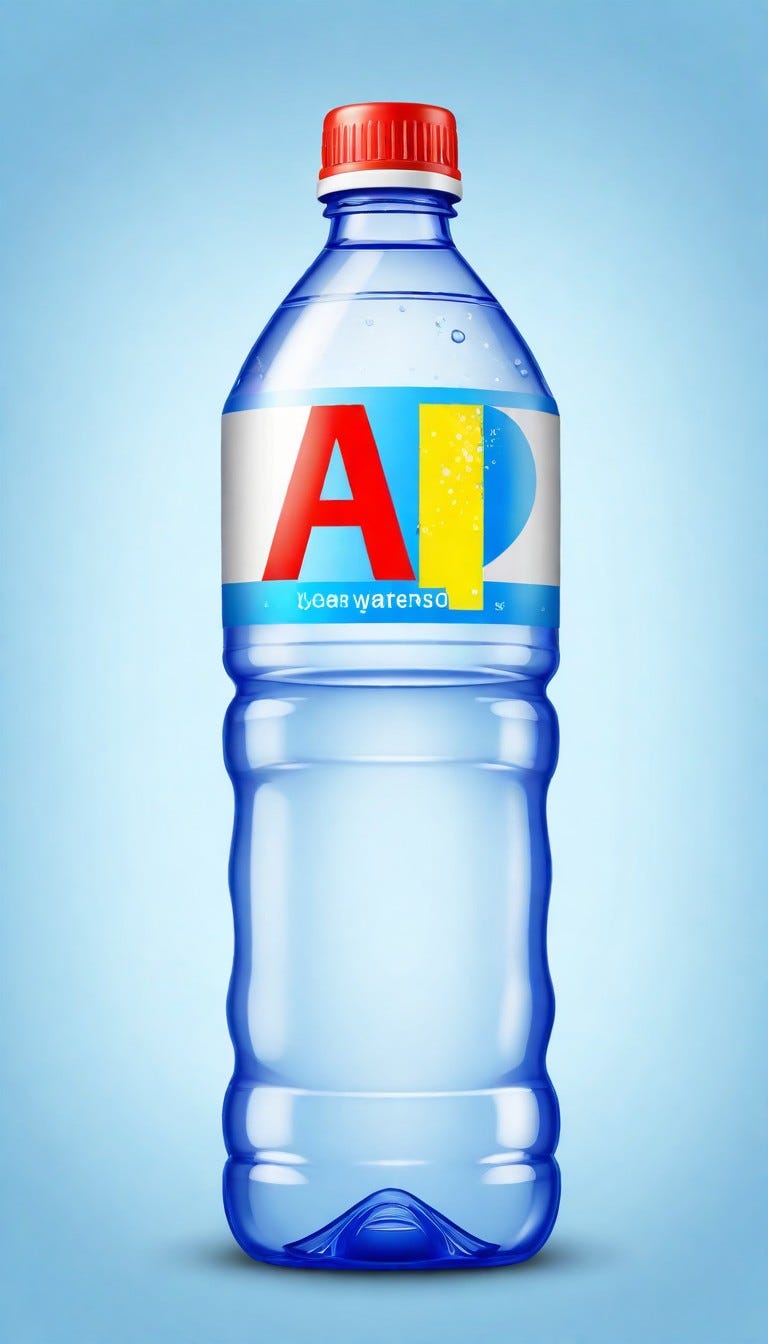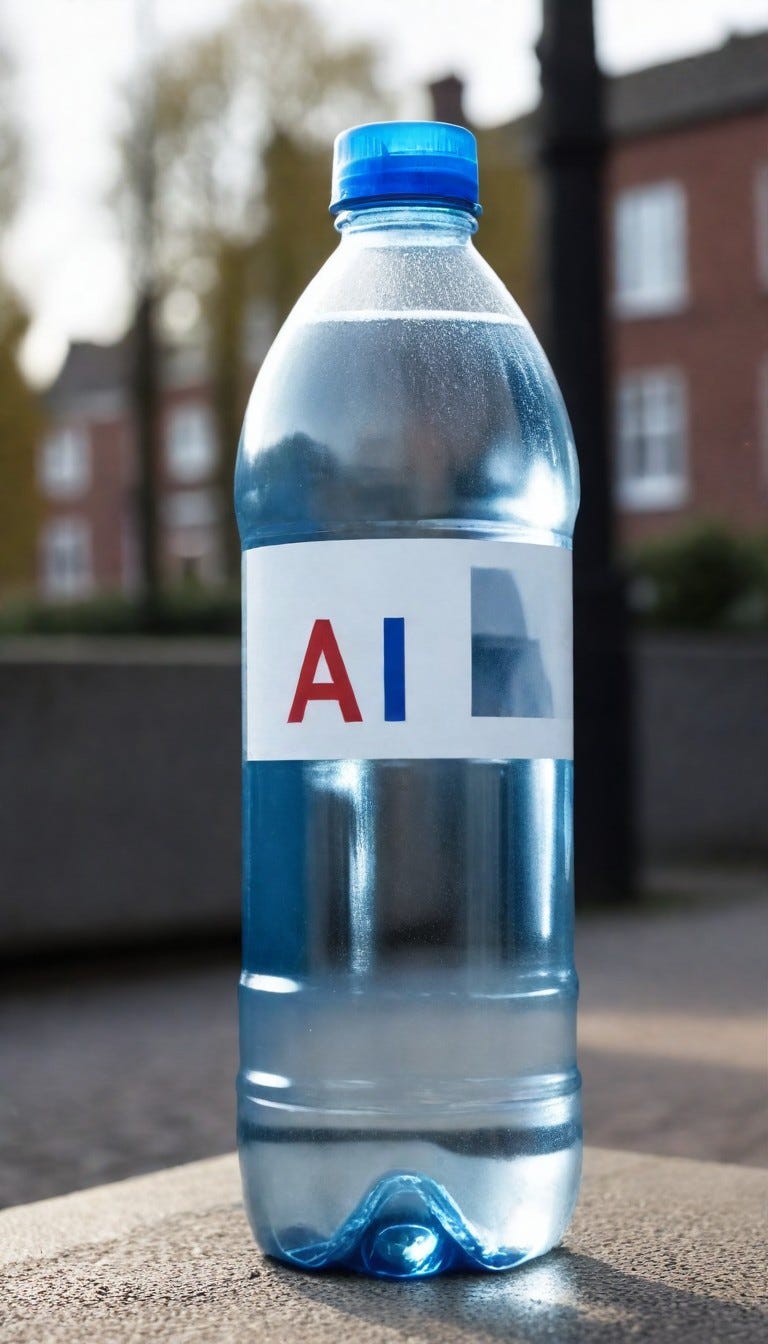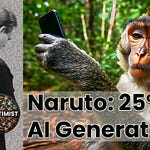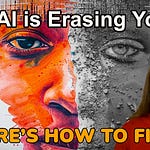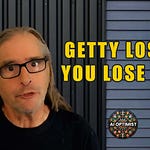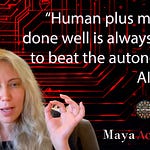Listen on Apple || Spotify || YouTube
Tell me the difference between ChatGPT, Claude, and Gemini to you?
For the early AI adopters and data scientists, it’s a matter of measurements, with Claude taking the lead this week.
For the general public who doesn’t get AI, it’s like comparing water brands.
If it’s true they are similar, like bottled water, then what’s the difference?
We explore the idea of GenAI being akin to bottled water – readily available, convenient, and sometimes the obvious solution.
We might choose a water brand based on packaging, taste, or reputation. The same principles could apply to selecting the best generative AI tool.
For beginners who need help with prompts, let alone the intricacies of language models, the technical differences between ChatGPT, Claude, and Gemini may not be understood.
Instead, the user experience, brand familiarity, and overall feeling may guide our choices—at least initially.
Look beyond the headlines and the fear-mongering surrounding artificial general intelligence (AGI) and instead approach GenAI with curiosity, playfulness, and an open mind.
After all, just like bottled water, GenAI is a resource meant to quench our thirst for knowledge and innovation.
Judging from this week’s AI noise, some like Claude some like Gemini some like ChatGPT and some like others, and Elon launches yet another lawsuit to save humanity from AI!

OpenAI Oxymoron: AI was NEVER open?
Listen to Elon in his latest lawsuit against OpenAI, they are a curtain with Microsoft being the Wizard pushing the AI levers!
What’s all the AGI yammering between OpenAI and Elon – PR melodramas again?
Welcome to GenAI, the so-called "bottled water" of the AI industry. Are these LLMs unique breakthroughs or repackaged versions of the same underlying technology?
If GenAI is like bottled water, how are AI companies outside the LLMs branding and marketing their GenAI offerings to stand out in an increasingly crowded market?
Engineers usually rely on tech and share quite a bit, though all the LLMs have considerable differences in the details. Maybe not so much in the outputs.
Thanks to Nfx for the inspiration from their article, AI is Like Water. Read it here.
Same AI Sauce, a different Bottle?
From ChatGPT's global brand recognition to niche players, we'll explore the strategies.
But the discussion continues further.
Your Data: The Secret Ingredient?
Remember all those social media posts? From Reddit to Tumblr to Meta, everyone is building AI on your data. Some are licensing, but it's all adding value, and you gave permission years ago.
Who owns our data, and what rights do we have regarding its use in developing AI?
Same Sauce, Different Bottle?
Think of GenAI as the bottled water of the AI startup world. There are a few big players, like ChatGPT, Gemini, and Claude; the underlying technology is often similar.
“But what we’re seeing with AI is that tech provides you basically no protection from the start. Tech differentiation in AI is a shrinking moat.” Morgan Geller, AI is Like Water
If the tech is the same, what’s the difference?
That's where the competition lies in AI.
The power of branding, marketing, and partnerships/business development.
Now, it's about presenting your AI in a way that stands out and solves specific problems for your customers.
LLMs as Bottled Water
ChatGPT: Imagine a sleek, alluring brand like Evian. It is widely available, reliable, and often the first name that comes to mind because it is often the first to speak. It usually games this market in the media and politics.
Claude is a sparkling water brand—AI with fizz and a touch of elegance. It caters to advanced users seeking a richer, more token experience (so far). However, it lacks the mass appeal of ChatGPT.
Gemini: The search king uses locally sourced, sustainable data, offers unique features, and is committed to responsible AI.
Not well known among the public, and the 800 lb. gorilla targeted by OpenAI in its early, 2014 save the world from Google AI days.
Open-Source Community: This is the community-driven spring water from artesian tech wells. It provides "raw" LLM technology, requiring users to bring their own "filtration" (technical expertise) to use it effectively.
Your Data: The Secret AI Ingredient?
Here's a twist: these powerful LLMs, or large language models, become more intelligent by learning from data. Think of it like training a robot puppy with terabytes more data (and no walking).
But where does all this data come from? You'll have to use multiple LLMs depending on the type of information and, ultimately, the sources.
The NY Times and others will make licensing deals, selling the data you gave them permission to use when Obama was US President.
Before, you knew what AI was or could do, like any of us really do.
Companies like Reddit, Tumblr, and Shutterstock partner with AI developers to "train" their models.
This raises questions:
Did we unknowingly give away lifetime access to all our data years ago?
Do those endless "Terms and Conditions" we clicked in 2014 cover this new AI world?
Possession is 9/10ths of the Law?
A Two-Sided Coin where they already have and are using your data.
The training data powering LLMs is like the secret ingredient in a recipe.
Are there alternatives to giving data freely, and who controls it?
Let's explore from two perspectives:
Data freedom: You Own You
Individual Controls: Data freedom supporters argue that we should completely control personal data. Every user should be able to choose what data is collected, how it's used, and by whom.
Transparency & Choice: They ask for clear, concise, and understandable data policies. We should be able to readily opt in or opt out of data collection and understand how their information is used.
Potential for Abuse: They raise the potential misuse of data for profiling, discrimination, and manipulation. Preventing misuse requires strong regulations and safeguards.
AI Agents: Sharing is Caring (But responsibly)
Data Fueling AI’s Evolution: AI developers know having diverse, high-quality data is crucial for training and improving LLMs. With this data, AI agents can provide the personalized experiences people expect.
Data Consent Matters: The vision is that data consent should be specific and tailored to the intended use. Users control what data is used for which purpose, preventing companies from using data unrelated to the initial agreement.
Building Trust: Responsible data practices, such as anonymizing data, minimizing collection, and prioritizing privacy issues, build trust and confidence.
Elon Musk vs. OpenAI:
Yep, it's an actual lawsuit. We'll delve into the drama and what it tells us about the future of AI development.
Imagine a world where artificial intelligence, not just helpful chatbots but the real deal, general intelligence (AGI), is within reach. Musk envisioned this future with OpenAI, a non-profit dedicated to developing AGI responsibly for everyone's benefit. But things took a turn.
According to Musk, OpenAI strayed from its original plan. It partnered with Microsoft, a tech giant hungry for innovation and profits. This partnership, Musk claims, transformed OpenAI from a champion for humanity to a potential puppet controlled by Microsoft's interests.
Now, Microsoft, through a complex licensing agreement, has access to some of OpenAI's technology.
But there's a catch: this access excludes AGI.
Musk believes OpenAI has already achieved (or is close to completing) AGI. Still, with a "friendly" board thanks to a recent, and allegedly orchestrated, leadership change, they might let Microsoft access this powerful technology anyway.
Musk wants OpenAI to remember its roots, prioritize humanity over profits, and ensure the responsible development of AGI. He also wants them to play fair with Microsoft and stick to the original agreement.
Is this just a billionaire's tantrum, and is there cause for concern? Like most things OpenAI, it's a black box that keeps its mouth shut.
And when OpenA talks to the US government and suggests scary AGI futures, it’s not wavering. It’s seeking control by keeping us fearful of AI.
Or making a similar AI chess move in this game of who owns the future.
See the complex ethical and legal questions surrounding powerful AGI:
Who controls it?
Who benefits?
And how do we ensure it's used for good?
Bottled AI Brilliance or Generic Water -
would you like fries with your GenAI Burger?
So, is GenAI really like bottled water?
Sure, it’s readily available, convenient, and only sometimes the most original solution.
Still, the packaging and purpose of the GenAI is what scales – people need to know what specific value they are getting that they can't just get from LLMs.
The future of AI relies on more than repurposing existing models.
Instead of generic "bottled water" solutions, let’s develop patent-pending tools that leverage LLM's power to solve problems.
Companies focusing on ethical outputs and privacy and specializing in niche areas build sustainable "moats" around their AI offerings. Technology is not an AI moat.
The value you deliver and the trust earned from well-run GenAI wins.
Stay curious, learn a new GenAI insight this week, and ask questions about the AI world around you. In the AI Age, knowledge may be powerful, but understanding how to use AI will define its direction.
Humans often get in the way, seeking to control and direct its course. And if the organic AI visionaries are correct, there may be better paths for us to take.





